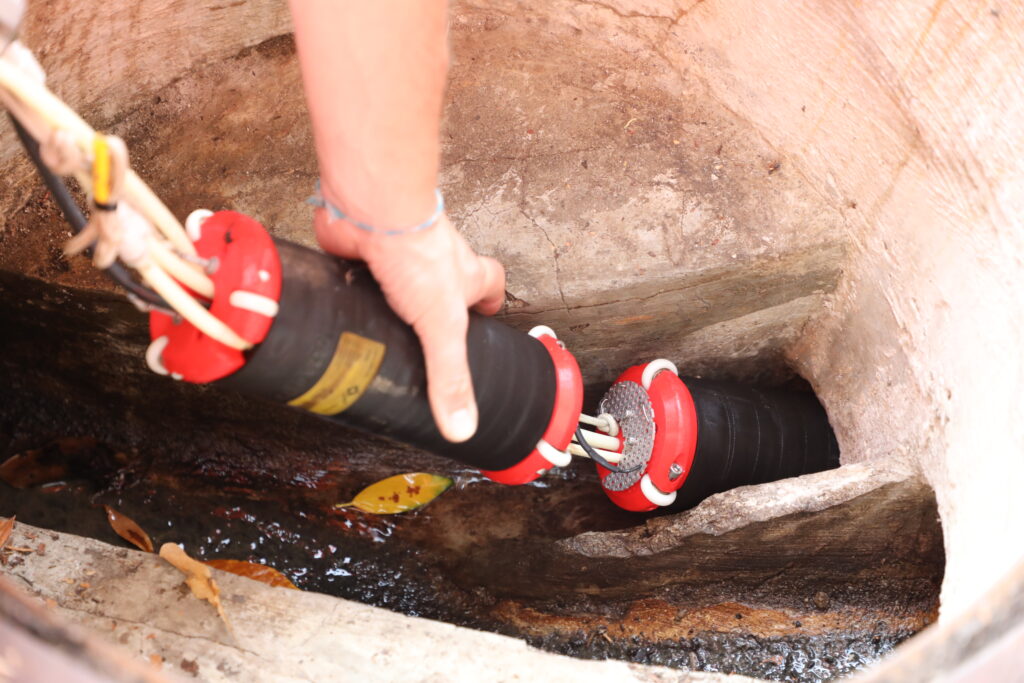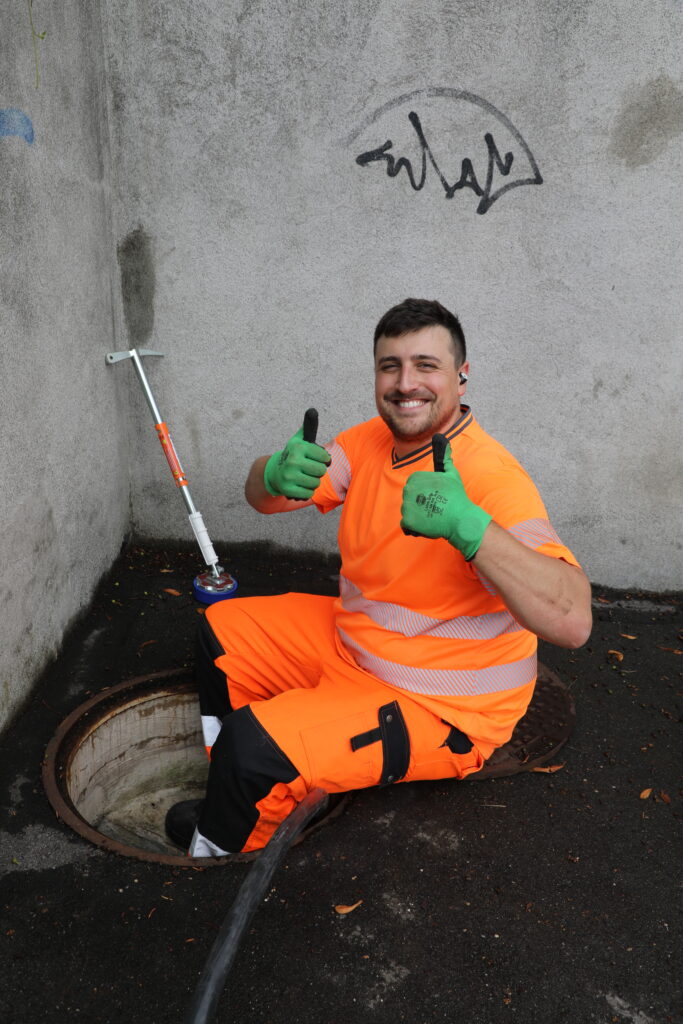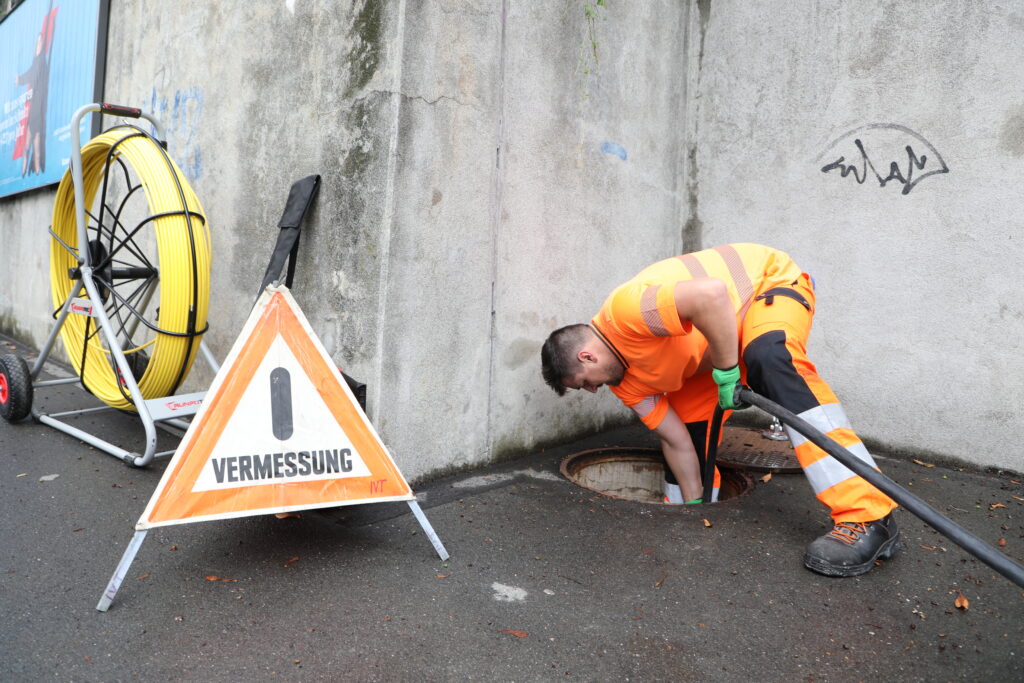Inspection method:
Non-destructive, entire length & efficient
Corrosion state
The load-bearing capacity of retaining walls largely depends on the corrosion condition of their rear reinforcement. Extensive studies have shown that corrosion damage significantly reduces deformation capacity. According to investigations by ASTRA, the reinforcement was affected by corrosion in about 25% of the examined cases. Current methods for assessing the corrosion condition are only spot checks, even though damage can vary greatly locally. This can lead to an overestimation or underestimation of the condition, resulting in either unnecessary, costly renovations or an increased risk of collapse.

TALPA Inspection
The rear bending reinforcement can only be inspected sporadically and randomly with today’s common inspection methods (rear shaft and exposing the reinforcement, front shaft and hydrojetting, core sampling from the front side). However, studies of the horizontal construction joint in retaining walls have shown that the corrosion condition and degree of corrosion of adjacent reinforcement steels can vary significantly. Based on these unsatisfactory investigations, coupled with significant uncertainties, engineers must assess the condition. This has led to substantial financial expenditures in the past for preventive rehabilitation of these structures.
TALPA Inspection developed a method for non-destructive inspection of the corrosion condition from the drainage pipe. The method is based on potential field measurement, which is also routinely used for corrosion detection and localization on reinforced concrete surfaces. The method was developed in numerous laboratory studies and has already been validated in initial pilot tests.
The technology allows for non-destructive inspection of the structure in critical areas along the entire length of the retaining wall. This enables early detection of critical damage and the initiation of targeted further inspections and repair measures.






